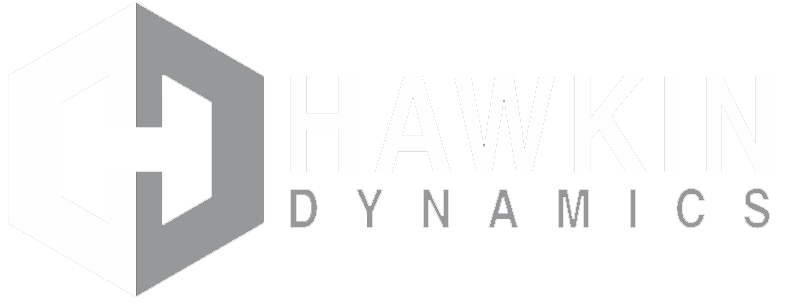The Experience of Professional Sport

I will always remember one NHL GM saying; “We don’t need to test them, we just need to get them in a room with their shirts off to get a look at them, that’s all we need to know if they’ll be worth drafting.” I still can’t believe I heard that in 2008.

On my podcast Leave Your Mark, I recently asked Duncan French, the performance director for the UFC, what his impression of his experience in the English Premiership was like? Did it live up to childhood dreams as he had the good fortune to work for his favorite childhood team? His answer was classic and appropriate. “It’s a bit like watching the Wizard of OZ. You have this impression of the Wizard, only to find out he’s just a little old man behind a curtain holding a megaphone!”
This, in some ways, was my experience in professional sport. I had the good fortune to work eleven seasons in the NHL. I started my career with the New York Islanders in 1998. I got the job as an S&C coach mostly because I was the only one of sixteen coaches interviewed who could skate. Little did they know I had no idea how to really skate, but that didn’t seem to matter. At least I knew what hockey was, and that seemed good enough for them. A Friday afternoon interview resulted in a Monday morning job assignment, with a little trip back to Montreal to pack more clothes squished in between.
My journey in the NHL had begun only to find out that this team was less than the most professional outfit on the planet! If you’ve ever seen the ESPN 30on30 about the man who tried to buy the Islanders in 1997, and successfully pulled the wool over everyone’s eyes through almost an entire season as he professed to have the money, living the life of the owner, all the while being a relatively normal Joe with nowhere near the assets required! Fascinating!
I was coming into this team eyes wide open, like a kid in a candy store. This was the vaunted NHL. Even though I was 35 years old and already 10 years into my career, this was another level.
But one week before training camp was set to kick off in Lake Placid, as I was helping the equipment and training staffs set up camp, we received word that the new owner was trying to break the lease the team had with the game rink, known as the Coliseum. We were being called back to Long Island to effectively move everything the team owned (equipment, desks, chairs, filing cabinets, telephones, everything!!) out of the building. We had to do this in a day, then create a make-shift opportunity at our team physician’s offices to do medicals and testing, then drive back up to Lake Placid in trucks filled with boxes to finish setting up camp!
Camp was supposed to be seven days long, but the whole time we were there, we kept hearing we might play all our games on the road for the entire season. Camp kept being extended, but finally twenty-six days later, the team was called into a meeting where the owner told us we were going back into the Coliseum, all would be right.
Meanwhile our captain, Trevor Linden was a hold out (waiting for a new contract), and so was the star of the team, Ziggy Palffy. We sucked and the suck of the start just rolled into the suck of the entire year. A combination bike room/snack/breakfast station, a gym attached to the shitters, a dressing room with a roof leak, commercial flights (imagine seeing Zedno Chara early in his career sitting in coach?!?), per diem withheld, and on and on. By the end of the season, I had become despondent…. was this what the NHL was really like?
An opportunity to work for the New York Rangers became available and through contacts, I was able to secure my chance to jump ships. With the permission of the GM Mike Milbury, I moved over to work with the Rangers less than a week before training camp. I would now be heading to Burlington, Vermont to do a training camp.
At first sight, the Rangers were in another class. Where budget had been a massive issue on the Island, there was next to no budget in Manhattan. We played at Madison Square Garden, and driving into a game, down 33rd street and looking at the Empire State building, you had this distinct feeling you had hit the big time.
It was the year after Gretzky retired, and the team was a little lost. They didn’t make the playoffs that year, and now without Gretzky, the quiet and stoic all-star defenceman Brian Leetch was in charge. John Muckler who had been a part of the storied Oilers franchises was our coach, and he was a crotchety old fossil at this stage of his career. He wasn’t interested in what the S&C coach could do. In fact, at that point, the league, in general, was still struggling with this new element of the coaching staff. You weren’t a coach, because you didn’t play pro hockey or hadn’t done your time in the coaching fraternity. You weren’t a part of the medical team, because that would mean you would treat, and even though I am and was a therapist, for some reason I couldn’t participate on that side of the party.
Here I was on this island, a necessary cog, but with leadership that was relatively unclear on how to use my services. I jumped in, worked along-side the medical and equipment staff, hung gear on the road, cleaned the dressing room, maintained the gym, and when the opportunity arose, did my best to keep players fit and healthy. This team was pretty good, but a late-season ACL injury to the eventual hall of fame goalie Mike Richter, ended up costing the team a playoff spot.
The off-season saw the GM who hired me, Neil Smith, fired. This cleared the way for new GM Glen Sather, and he brought back legend Mark Messier (the man who had predicted the Rangers Stanley Cup Victory in 1994). I still remember vividly scrimmaging before the season with all the boys and my line mates were Messier and Leetch……still a bit crazy to recall!
New coaches and many new players rolled in including Theo Fleury. The year was filled with all kinds of ups and downs. Inconsistency of play, injuries, and players going AWOL (including some of the stars). The team had the highest payroll in the NHL, and I calculated one day at an injury skate that there was about 30 million in payroll not playing for the team!!
It was a difficult year for everyone, and I was no exception. The stress on me was causing havoc at home and by the end of the year, I was divorced. Five days after the season I found myself without a job as well, as Glen Sather said to me, “Scotty, I’m not firing you, I’m just not rehiring you.”
I was a bit lost, was I just not cut out for this game or this league? It’s a tough business with little or no support and not a lot of interaction with the coaches. In my eleven-year career, I can count on one hand the number of conversations I had with a coach that lasted longer than ten minutes.
There was never any pre-season, or after season briefs or debriefs. You simply got on the bus. You did what you had to do!
I found myself back in Montreal, as luck would have it for me, but not for the former S&C coach, the Montreal Canadiens had back to back 500+ man-games lost seasons, and they were looking for a new solution. Now, perhaps, things would be different, I could work in my hometown, with guys I knew well on the medical staff and operate as the S&C and therapy professional I knew I could be.
I spent the next 8 years working for the Canadiens. Building a robust development and performance program. We took the man-games lost down from 500+ to a respectable average of 145 MGL’s through the eight seasons. By the time I was left, we had moved to a fully supported on-ice testing protocol with lactate measures, heart rate measures, and digital timing. There was a growing appreciation for what the profession could do in the league, and on the team, but things still lacked in terms of communication, decision making, planning, and affecting the overall performance on the ice. I grew tired of trying to move the elephant.
I tried to change the NHL combines, which had become this schmozle of over 30 tests done back to back all day with the NHL’s finest prospects. I still remember sitting on a call with some GM’s and leaders in the league draft system trying to determine a better process for testing prospects, inclusive of on-ice testing. I will always remember one GM saying; “We don’t need to test them, we just need to get them in a room with their shirt off to get a look at them, that’s all we need to know if they’ll be worth drafting.” I still can’t believe I heard that in 2008.
The game has changed a lot in the last 10 years. GPS and data analytics are hitting their stride in the game and although these areas are still in their infancy regarding implications, they are indeed making waves. S&C coaches are a fixture of the game, but the rift between them and the medical staff still exists. Some teams are improving their integration, teams are hiring Performance Directors, and this seems to be moving the dial in the right direction.
Strength and conditioning coaches are still not paid very well, on average probably something to the tune of $90K with the low end in the roughly $60 and high end around $200K. They should be paid like assistant coaches, so for that matter should the head therapists, but this is truly not the case. On an hourly rate, you’d likely be paid less than minimum wage if you did the math.
Are there perks? Absolutely! Nice restaurants, great hotels, charter flights, reputation, stories, fraternity, etc. You are in the show, and that does come with a cache.
But the bottom line is that professional sport is not what it appears to be from outside looking in. It’s hard work, long hours, low pay, and a relative lack of appreciation. You need to do it because you love the opportunity to be a cog in the wheel of performance, and you need to know that winning and losing is not your game. Your game is to ensure the players are ready and healthy, and that’s all you can do.
The Wizard of Oz!
Scott has been a member of the CSCA Advisory Team since inception. He is based in Quebec. Be sure to look for his podcast, Leave Your Mark.






